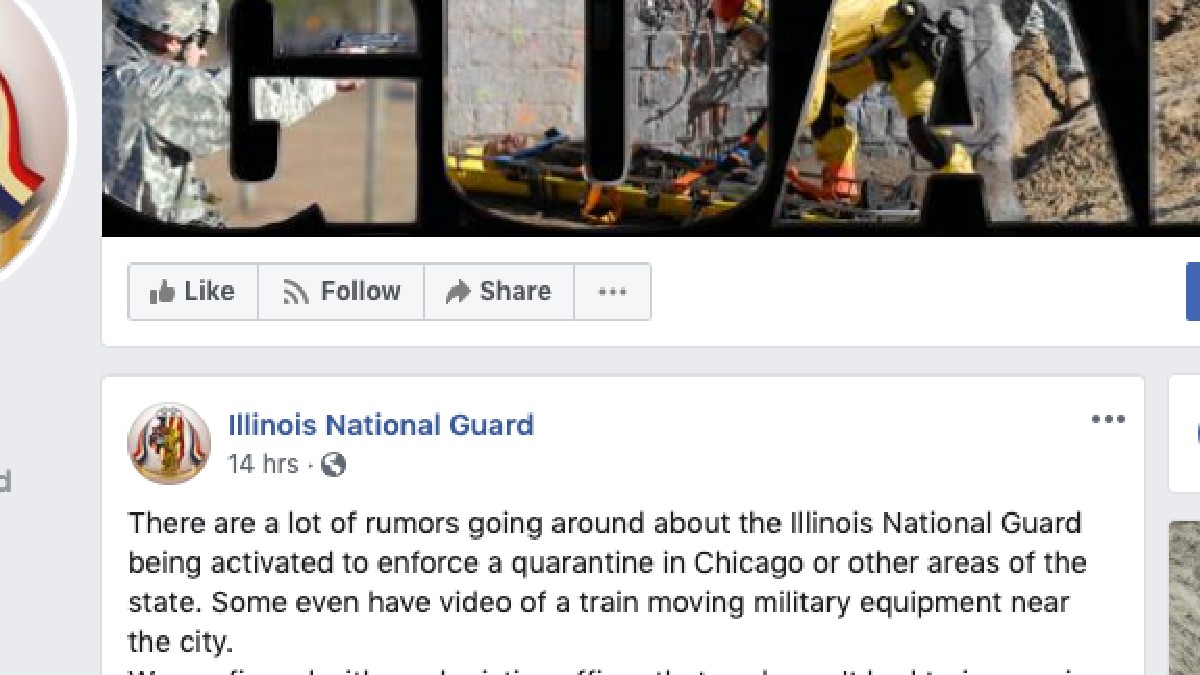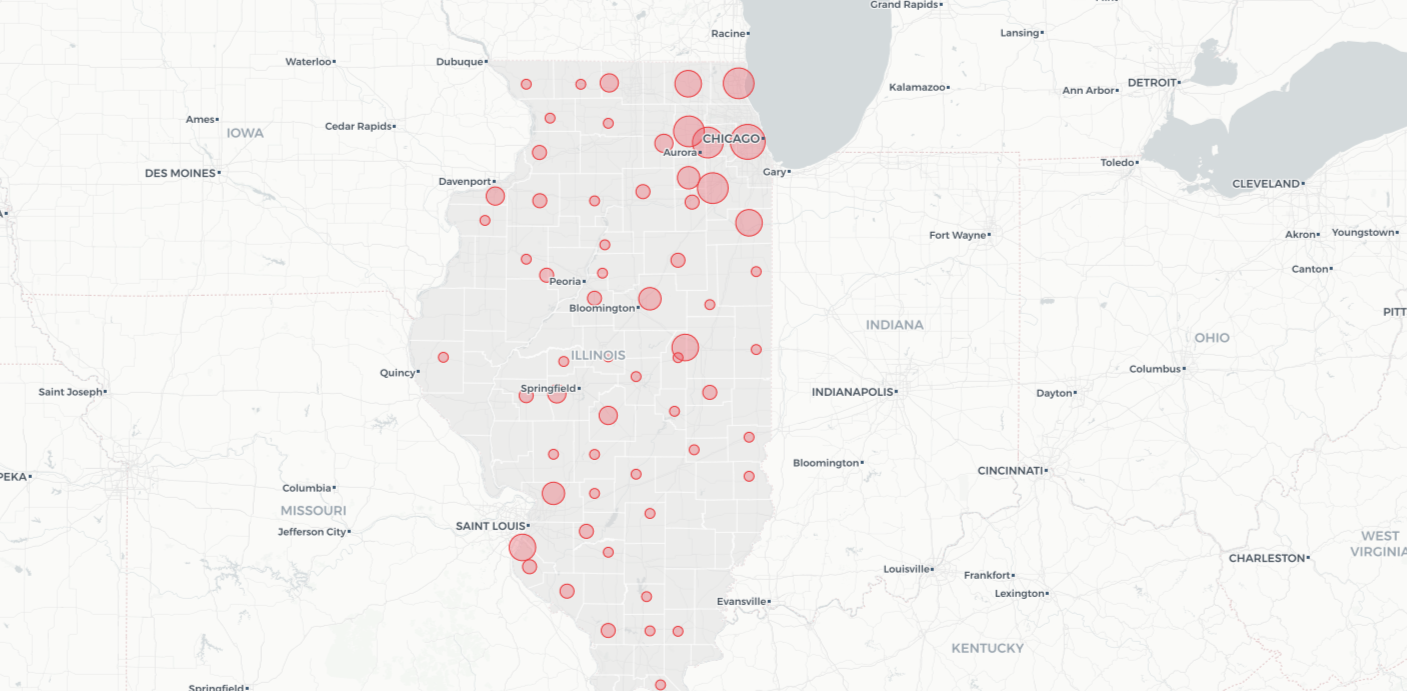As coronavirus cases continue to rise in the U.S., questions have been circling about shelter-in-place and stay-at-home orders.
Illinois' governor on Friday issued a statewide stay-at-home order, following California, which issued a similar order a day earlier as both states battle a rising number of cases.
In the west Chicago suburb of Oak Park, a shelter-in-place order began Friday as the village's mayor and health officials try to stop the spread of the deadly virus. The order is in effect from 12:01 a.m. March 20 through 11:59 p.m. on April 3.
Though no order has been issued nationwide, the state mandates are similar to ones issues across the globe.
In France, officials imposed nationwide restrictions on residents' movement, allowing them to leave home to buy food, go to work, or other essential tasks.
Switzerland’s government declared a state of emergency, ordering shops, restaurants, bars and other facilities shut down. The measures exclude health-care operations as well as supermarkets, but also include entertainment and leisure facilities, which will be closed until April 19.
Italy and Spain were both placed under similar orders.
In Spain, people are allowed to leave their homes only to buy food and medicine, commute to work, go to hospitals and banks, or take trips related to the care of the young and the elderly. All schools and universities were closed, along with restaurants, bars, hotels and other nonessential retail businesses.
The orders can differ by location, but so far, there have been exceptions allowing people to leave their homes. So what does that mean for you?
What’s open?
In California and Illinois, for example, essential services remain open such as:
- Banks
- Gas stations
- Grocery stores
- Hardware stores
- Medical offices
- Pharmacies
- Public parks and open recreation areas (Parks may be closed at the discretion of each jurisdiction)
- Restaurants (For delivery or takeout only)
Essential state and local government functions also remain open, including law enforcement and offices that provide government programs and services.
What’s closed?
- Dine-in restaurants
- Bars and nightclubs
- Entertainment venues
- Gyms and fitness studios
- Public events and gatherings
- Convention Centers
The order also closes licensed child care centers and all childcare homes serving more than six children.
What can you do?
In Illinois, residents are still allowed to leave their homes for essential needs like:
- For health and safety: seeking emergency services, obtaining medical supplies or medication or visiting a health care professional
- For necessary supplies and services: obtaining groceries and food, household consumer products, supplies they need to work from home, and products necessary to maintain the safety, sanitation and essential operation of residences
- For outdoor activity: walking, hiking, running or biking – including going to public parks and open outdoor recreation areas, except for playgrounds
- For certain types of work: Providing essential products and services at Essential Businesses or Operations or otherwise carrying out activities specifically permitted in the order, including Minimum Basic Operations
- To take care of others: Caring for or transporting a family member, friend or pet in another household
Who can still work?
In Illinois, the order exempts those working in "essential businesses," which include but are not limited to:
- Healthcare and Public Health Operations: Working at or obtaining services from hospitals; clinics; dental offices; pharmacies; public health entities; healthcare manufacturers and suppliers; blood banks; medical cannabis facilities; reproductive health care providers; eye care centers; home healthcare services providers; mental health and substance use providers; ancillary healthcare services — including veterinary care and excluding fitness and exercise gyms, spas, salons, barber shops, tattoo parlors, and similar facilities
- Human Services Operations: any provider funded by DHS, DCFS or Medicaid; long-term care facilities; home-based and residential settings for adults, seniors, children, and/or people with disabilities or mental illness; transitional facilities; field offices for food, cash assistance, medical coverage, child care, vocational services or rehabilitation services; developmental centers; adoption agencies; businesses that provide food, shelter, and social services and other necessities of life for needy individuals — excluding day care centers, day care homes, group day care homes and day care centers licensed as specified in Section 12(s) of the order
- Essential Infrastructure: Working in food production, distribution and sale; construction; building management and maintenance; airport operations; operation and maintenance of utilities, including water, sewer, and gas; electrical; distribution centers; oil and biofuel refining; roads, highways, railroads, and public transportation; ports; cybersecurity operations; flood control; solid waste and recycling collection and removal; and internet, video, and telecommunications systems
- Stores that sell groceries and medicine
- Food, beverage and cannabis production and agriculture
- Organizations that provide charitable and social services
- Media
- Gas stations and businesses needed for transportation
- Financial institutions
- Hardware and supply stores
- Critical trades, including plumbers, electricians, exterminators, cleaning and janitorial staff for commercial and governmental properties, security staff, operating engineers, HVAC, painting, moving and relocation services, and other service providers that maintain the safety, sanitation and essential operation of residences, Essential Activities, and Essential Businesses and Operations
- Mail, post, shipping, logistics, delivery and pick-up services
- Educational institutions, for purposes of facilitating distance learning, performing critical research, or performing essential functions
- Laundry services
- Restaurants for consumption off-premises
- Supplies to work from home
- Supplies for Essential Businesses and Operations
- Transportation, for purposes of Essential Travel
- Home-based care and services
- Residential facilities and shelters
- Professional services
- Day care centers for employees exempted by this Executive Order
- Manufacture, distribution, and supply chain for critical products and industries
- Critical labor union functions
- Hotels and motels, to the extent used for lodging and delivery or carry-out food services
- Funeral services
What about travel?
In Illinois, only essential travel is permitted and must be done in accordance with social distancing requirements. That includes travel related to:
- Performing Essential Activities, Essential Governmental Functions, Essential Businesses and Operations or Minimum Basic Operations
- Caring for elderly, minors, dependents, persons with disabilities or other vulnerable persons
- Receiving materials for distance learning, for receiving meals, and any other related services from an educational institution
- Returning to a place of residence from outside the jurisdiction
- Following the direction of law enforcement or court order, including to transport children pursuant to a custody agreement
- Returning to a place of residence outside the State for non-residents



